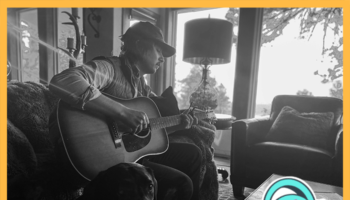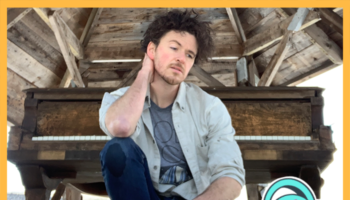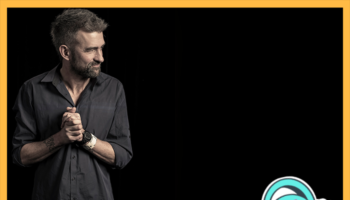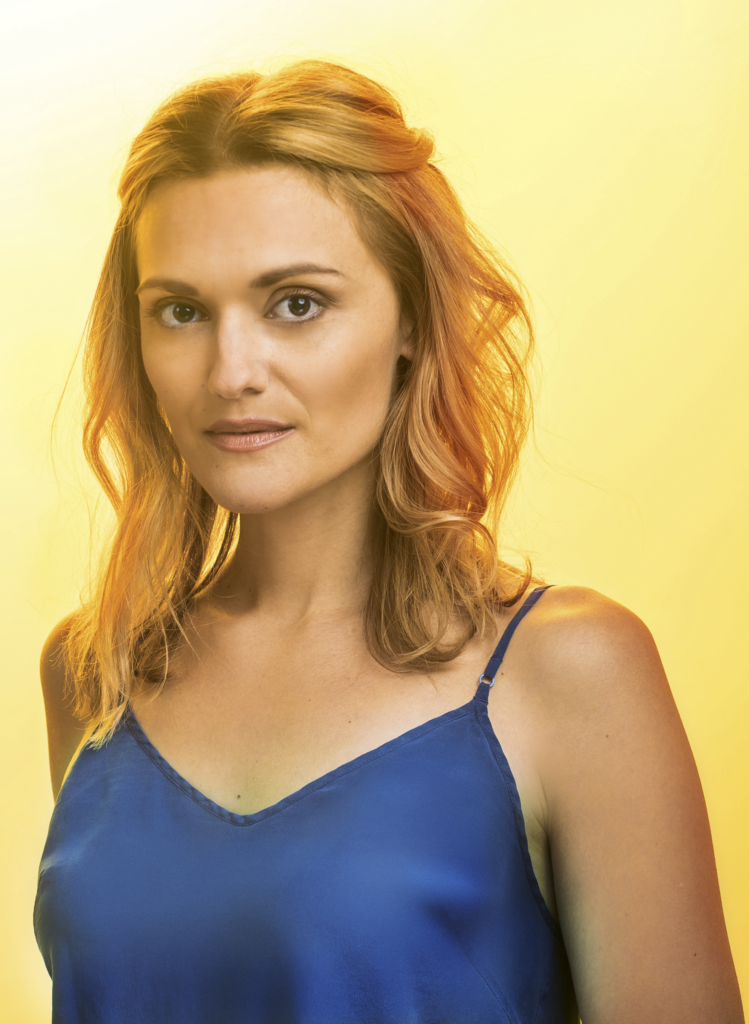
So much can be done with a voice. It has the power to affect people almost instantly, whether through song, prose, or the emotionally-tinged delivery of a well-written line or a verbalized thought, genuine or otherwise. The eyes may be the gateway to the soul, but the voice is its narrator.
One actress who knows the power of voice better than most is Patricia Summersett. The Michigan native can currently be heard as Princess Zelda in Nintendo’s immensely popular “The Legend of Zelda: Breath of the Wild.” Her credits also include voice acting in the games of the “Assassin’s Creed” franchise and “Tom Clancy’s Rainbow Six: Siege” as well as onscreen roles in “Helix” and the upcoming film “Maz.”
We recently sat down with Summersett to discuss the process of working in video games, how she felt about taking on such an iconic character, and how ice dancing compares to a career in acting.
TrunkSpace: Video games take years to complete. At what point are voice actors brought into the process?
Summersett: Great question! In my experience it’s been a little bit different every time, depending on the style of the game and what kind of character work you’re doing. If it’s just voice. If it’s grunts. Or if it’s motion capture. For Zelda in particular, I was brought in about a year ago after some of the cinematic and all that stuff had been completed, or at least enough to be able to track what was needed narrative-wise. So, yeah, about a year for this one. Other games it’s been… sometimes I’ve been on a project for two years before the game is even close to coming out. Sometimes probably more and sometimes a bit less. You rarely do things the month before a release. You usually do things four to five months before something is released, minimally, because there’s so much tech-heaviness at the end of it.
TrunkSpace: Because the voice aspects of video games serve as plot points for moving the game forward, are there less opportunities for working off script than in film or television?
Summersett: Ooh. That again would probably depend, sometimes, on the process of the game itself… on the style of the game. I would definitely say for games like “Breath of the Wild,” for sure, much less opportunities. It’s quite precise work that’s already very technically planned out, down to the minute millisecond of what you’ll be doing. With that said, every once in awhile improvisation is needed and within the structure of a sentence or certainly the color of what you’re putting into a phrase, that’s all very malleable and that’s why they hire you, so that you can give an interpretation.
TrunkSpace: So when you’re physically doing the work, are you working with a director in the same way that you would in film or television?
Summersett: I think there are definitely similarities for sure. For “Breath of the Wild,” for example, I worked with Jamie Mortallaro and there were usually several people in the room or behind the computer and often one, two, or three people weighing in on what’s being done at any given time. Certainly the relationship with the director is a very important one and when it goes well and it’s a very supportive thing, it can definitely make a project.
TrunkSpace: Zelda as a property is so iconic, particularly to those of us who grew up in the 80s. When you’re working on something that is so established and has left such a mark on pop culture, does it feel like more than just a job when you get in there and start the process?
Summersett: Yeah. I did feel a bit like that. There was definitely an extra added layer of what felt a bit like magical pressure. (Laughter) I do find every game that I do and every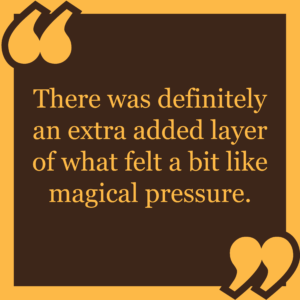 project that I do… I love the work always and it’s always special, but it was definitely tinged with an extra layer of… it was a really special room to be in.
project that I do… I love the work always and it’s always special, but it was definitely tinged with an extra layer of… it was a really special room to be in.
TrunkSpace: Actors always say that they can get that special feeling when they’re working on a film or television show, as if the quality of the final product is written in the cards. Are games that same way?
Summersett: Definitely!
TrunkSpace: Gamers can be very fanatical, particularly when it comes to their beloved franchises and the characters within those franchises. How have Zelda fans reacted to your take on Princess Zelda?
Summersett: Well, I’ve received a heck of a lot of support. Obviously not everybody is totally on board with it because people have such a longstanding idea of what she should sound like with the 30 years of the franchise as it is, but I get approached every day with really beautiful words from people. It’s really spectacular. I’ve received a lot of support and it’s been very nice. I’m very happy when people enjoy it because, obviously I did my best. (Laughter) I put my whole heart into it.
TrunkSpace: Do you take a different approach in preparing for voiceover work than you do with onscreen work? And by that we mean, is readying a character different?
Summersett: It depends on the process because some video games, and some TV/film, you don’t get a lot of airtime in it or it’s entirely based on barks or grunts or something extraordinarily technical. With any sort of character development that I ever get a chance to sink my teeth into, I usually go with my theater training. My background is theater so I consider it a full body experience and I work with a narrative and intention and the things that I learned through my 10 years of acting. To me it’s all the same. They’re all characters and it’s all a narrative. If you’re lucky enough to get something to be fleshed out, that’s fantastic.
TrunkSpace: In theater it’s about projection and a lot of times onscreen it’s about taking a more subtle approach. Does video game voiceover work fall somewhere in the middle?
Summersett: Yeah, I think it does. I love that about voiceover work because you can go from… for example, another character that I do is a character in a game called “Rainbow 6: Siege” for Ubisoft. It’s this character called Ash and a lot of what was required for that particular job was full on belting, screaming, shouting for a couple of hours at a time. You need a lot of voice stamina for that. And then something like Zelda, on the completely other side, was really, really fine-tuned, pitching your voice a particular way and going with a very soft delivery. So, much like theater, TV, and film… there’s a lot of variation within the form.
TrunkSpace: Do you have to take special care of your voice when not working to ensure that you can keep working?
Summersett: Yeah. In general, I think with any kind of work that I do, if I know that there’s stamina involved or if you have to keep your voice pitched at a certain place, it definitely requires warming up into the work in the morning. I’ve done a lot of years of voice training… I also sing… so they all kind of apply in the same way to voice work. Sometimes I avoid eating too much milky foods, for example, before I go in and sit in front of a microphone. One thing that I do is I sometimes might eat an apple if I’m getting a lot of crackles. Stuff like that.
TrunkSpace: It’s a fascinating aspect of the job because you hear all of the time about athletes taking care of their bodies or carpenters taking care of their tools, but really, the voice is your tool in your particular trade. Even talking in a loud room could be a strain and put your work at risk.
Summersett: For sure. I tend to avoid loud situations where I have to speak at a peak volume for a long period of time with loud music. I find that quite overwhelming and I always feel it the next day. I go into those situations less and less. My sister is an opera singer so we’re often exchanging notes and that sort of thing. She’s got a whole regime as well with the Mccloskey technique and avoiding certain foods that are too acidic… all that stuff.
TrunkSpace: Has the industry changed at all for you in terms of the freedom of it, especially with technology continuing to advance?
Summersett: I am finding that I am more portable than I used to be, for sure. There’s a lot more self-takes. There’s a lot more recording from my Yeti mic in a room and bringing that Yeti mic with me when I go. The interesting thing though is that while that is definitely true, on the flip side because I’m often back and forth between Canada and the US as a citizen of both countries, everything has accelerated in the speed at which jobs get pushed through and you need to be in the place where you will be working too. There’s a certain degree that can be quite mobile and then another thing is that you have to actually be in the town where you want to work in because so much of it is turned around the next day.
TrunkSpace: In the age of the internet, confidentiality agreements are par for the course in the world of entertainment. We’d imagine they’re particularly strict when it comes to games?
Summersett: Yeah. It’s amazing how much of it is about secrets and leaks. It’s quite fascinating around the mystery of what’s going to get released next… more so than the other industries.
TrunkSpace: It’s like politics.
Summersett: (Laughter) Yeah.
TrunkSpace: We read that you were a competitive ice dancer prior to pursuing acting. That is a sport that requires so much training and focus. Did you apply that same work ethic to your acting career when you made the transition?
Summersett: I certainly did and do. Obviously it’s not necessary to be a competitive athlete to get into acting, but I do find that for me it has helped, I think, with confidence and endurance over the many years. And maybe even just when I do things like motion capture and things that are highly technical… I do rely on my athletic training and my training for spatial awareness and that sort of thing.
TrunkSpace: So much of both worlds, ice dancing and acting, seem to be about commitment and just putting in the work in order to continue to improve.
Summersett: Definitely. When I was a competitive ice dancer, I lived to be a competitive ice dancer. My entire existence was around that. It was obsessive. And I do think acting projects can be like that as well, which is one of the reasons why I love the career. They are similar in a certain way. When I moved from ice dancing to acting, ironically I found acting a more sustainable lifelong thing. (Laughter) It’s such a crazy career, but you can obsess about it your whole live, which is fantastic. (Laughter)



